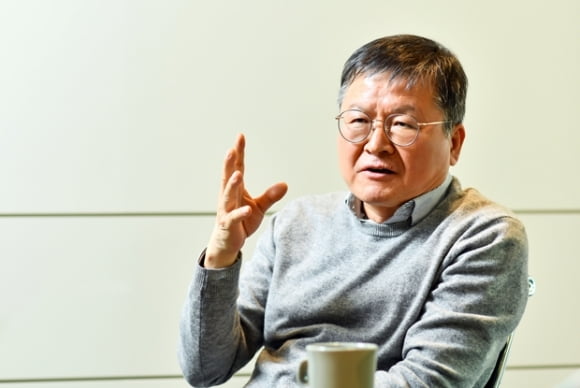DanDi Bioscience
- HOME
-
ABOUT US
-
WORK
-
PR
-
CAREERS
-
CONTACT US
-
ABOUT US
-
WORK
-
PR
-
CAREERS
-
CONTACT US
- HOME
-
ABOUT US
-
WORK
-
PR
-
CAREERS
-
CONTACT US
What’s new?
2023-01-13danbio
Dandi Bioscience, Dandibio “Entering domestic phase 1 trial for endotoxin-targeted Alzheimer’s diseahttps://www.hankyung.com/it/article/202202090851i
This post has been translated from the original article dated 2/16/2022.
[Exploration Note] Interview with CEO Park Young-min②-End

(Continued from Part 1)
Dandi Bio also paid attention to the correlation between Alzheimer's disease and bacteria. Recently, through many studies, it has become known that one of the main causes of Alzheimer's disease is bacteria in the brain and 'endotoxin (LPS)' released by bacteria. Therefore, it is developing an Alzheimer's treatment that targets bacteria and LPS at the same time.
"We will develop an Alzheimer's treatment and an Alzheimer's diagnostic kit that target LPS along with a sepsis treatment," said Park Young-min, CEO of Dandibio.
“Gram-negative bacteria and endotoxin, attention as the cause of Alzheimer’s”
Until now, it has been known that the cause of Alzheimer's disease is a rapid increase in neurofibrillary tangles due to aggregation of amyloid beta or accumulation of hyperphosphorylated tau protein in the patient's brain. Accordingly, global research institutes and global pharmaceutical companies have started to develop dementia treatments that target it.
However, CEO Park believes that it is difficult to expect a fundamental treatment effect by targeting a single factor like this or treating it after confirming the condition.
Recently, research results have been reported showing changes in the distribution of bacteria in patients with Alzheimer's disease and animal models compared to normal groups. It was confirmed that various Gram-negative bacteria such as Escherichia coli gingivalis and LPS exist in the brain tissue of Alzheimer's patients and Alzheimer's-induced animals.
CEO Park said, “There are studies showing that Gram-negative bacteria and LPS pass through the blood-brain barrier (BBB) and cause various pathological effects in brain tissue.” It is known to induce brain inflammation and cause the death of nerve cells.”
Dandibio plans to develop a first-in-class drug that fundamentally prevents and treats Alzheimer's disease by targeting Gram-negative bacteria and LPS. He said Gram-negative bacteria and LPS are new causes of Alzheimer's disease, and targeting them could be a strategy for developing new treatments.
CEO Park said, "Since Alzheimer's is involved in various onset factors and various pathological characteristics appear depending on the stage of progression, it is necessary to develop a multi-mechanism treatment that takes these into consideration." It will be an important strategy to prevent over-progression.”
Through research, Dandi Bio confirmed that Gram-negative bacteria and LPS directly or indirectly cause or accelerate Alzheimer's pathology through various mechanisms. In addition, the correlation between Gram-negative bacteria-derived LPS and Alzheimer's was demonstrated through blood analysis of actual Alzheimer's patients. In November of last year, a thesis containing these contents was published in the International Journal of Science and Technology Citation Index (SCI), ‘Translational Neurodegeneration’.
DD-A279 is expected to kill Gram-negative bacteria in the brain and control LPS, suppressing amyloid beta aggregation and hyperphosphorylation of tau protein.
Dandi Bio confirmed that DD-A279 inhibits the accumulation of amyloid beta and the phosphorylation and aggregation of tau in Alzheimer's cells and animal models. In addition, it was said that it inhibited the death of nerve cells, activated microglia, and reduced cytokine secretion.
In June of last year, the company received global rights to DD-A279 from the Konyang University Industry-University Cooperation Foundation, which conducted joint research. It plans to complete preclinical trials this year and enter phase 1 clinical trials next year. CEO Park said, "Like the sepsis treatment, we are currently discussing with global pharmaceutical companies for technology transfer around phase 2."

Dandibio plans to expand the development of treatments for various diseases that can be caused by endotoxins in the future. recurrent cystitis and non-alcoholic steatohepatitis (NASH).
Dandi Bio is also developing a kit for early diagnosis of Alzheimer's called 'DD-A514'. It is a method of early diagnosis of dementia by detecting LPS in the patient's blood. To this end, it signed a cooperation contract with Flexense, a diagnostic kit platform developer, in March last year. Starting this year, it plans to sell LPS removal kits for researchers to domestic laboratories.
CEO Park said, “Based on the support of parent company Next Science and HLB, we look forward to collaborating with the HLB Bio Ecosystem (HBS), which consists of pharmaceutical and bio companies within the HLB Group.” We will promote technology transfer, etc., and proceed with KOSDAQ transfer listing in the first half of next year.”
Reporter Kim Ye-na

